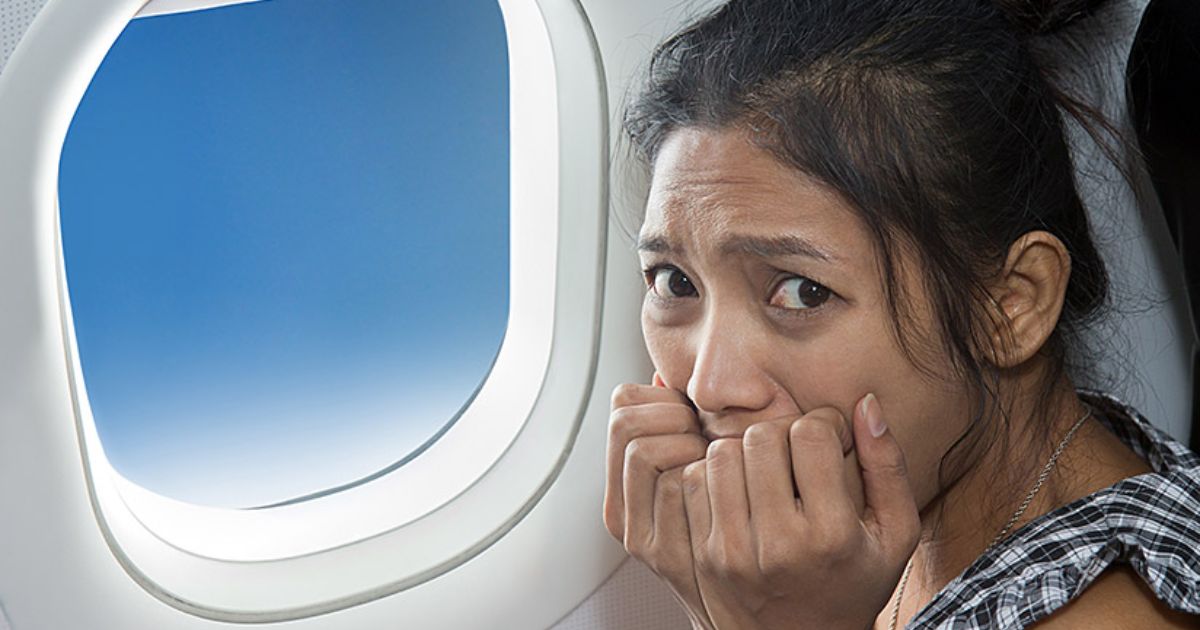Aviophobia is the Fear of Flying and Turbulence
A 2015 Economist/YouGov poll found that flying causes some level of turbulence anxiety for a significant number of people, with fear expressed by 15% and minor irritation reported by another 40%.
One common trigger for turbulence anxiety can exacerbate concerns about flying safety.
Turbulence, referred to as “rough air” by pilots, refers to inconsistency or disorganized air movement caused by factors such as changes in air pressure, thunderstorms, or airflow around geographical features.
Understanding the Levels of Turbulence
Turbulence is broadly categorized into four levels: light, moderate, severe and extreme. The most common type of light turbulence only results in small bumps or wobbles felt on commercial planes.
Moderate turbulence is less frequent and usually leads to rougher movements that might spill drinks.
Severe turbulence occurs rarely enough and causes injuries to unbucklers but there even more hardly ever instances where turbulent motion is so violent that the airplane loses control.
Acknowledging the limitations of this approach, weather reports and radar data are constantly examined by pilots and air traffic controllers during flights. As well as continuous advances in detection systems.
NASA together with National Center for Atmospheric Research (NCAR) and the University of Wisconsin have come together with a view to design a program.
It brings into play satellite data, computer models of weather pattern as well as artificial intelligence that would enhance prediction of areas that are turbulent in nature.
These developments show a step ahead towards deeper comprehension about the dynamics of turbulence and more refined predicting tools.
By utilizing technology and enhancing communication among aviation professionals, the aviation industry hopes to improve passenger safety and comfort amidst challenging turbulent conditions in the skies.
Turbulence Management and Safety Measures
Despite the fear it may induce; turbulence poses little threat to present-day aircrafts. Communication between pilots concerning experiences of turbulence often informs other pilots about their location, and flight paths can be adjusted to seek smoother air.
Advanced weather forecasting and radar systems also aid in navigating away from turbulent areas.
Significantly, severe turbulence, the type that causes harm, is typically found around severe thunderstorms, which can now be avoided by aircraft with the help of advanced technology.
Although not a direct cause of plane crashes, personal safety during turbulence remains important.
According to Federal Aviation Administration (FAA) statistics between 2009 and 2022, 163 serious turbulence-related injuries were reported with flight attendants being the most affected due to their less seated time.
Injury prevention messages such as staying seated and buckling up during turbulence as well as complying with instructions from flight attendants are emphasized.
Strategies to Alleviate Turbulence Anxiety
There are several strategies which can help individuals manage anxiety associated with turbulence:
1. Strategic Seating
Choosing a seat away from the back of the plane where turbulence tends to be more noticeable can help ease turbulence anxiety.
2. Listening to Flight Crew
Listening closely at pre-flight weather briefings and following the guidance given by the flight attendants during turbulent times is very important for personal safety and reassurance.
3. Grounding Techniques
By focusing on particular objects or touchpoints or smells or ambient sounds which engage our senses of sight, touch, smell and hearing we can ground ourselves thereby reducing this level of anxiety .
4. Breathing Exercises
Rhythmic breathing practice, including 3-3-3 method (inhalation for three seconds, hold for three seconds, exhale for three seconds and wait for three) helps to calm the body and mind.
5. Sitting next to the other passengers
Starting a light conversation with a passenger next to you can help to distract from noise turbulence anxiety benefiting both the involved persons.
In conclusion, while turbulence may cause fear among many travelers in airplanes, knowing what it is and its safety precautions as well as adopting coping techniques can greatly help reduce fears.
Modern aviation technology coupled with pilot’s skills and strict safety measures guarantee that passengers fly calmly even when the atmosphere is turbulent.


